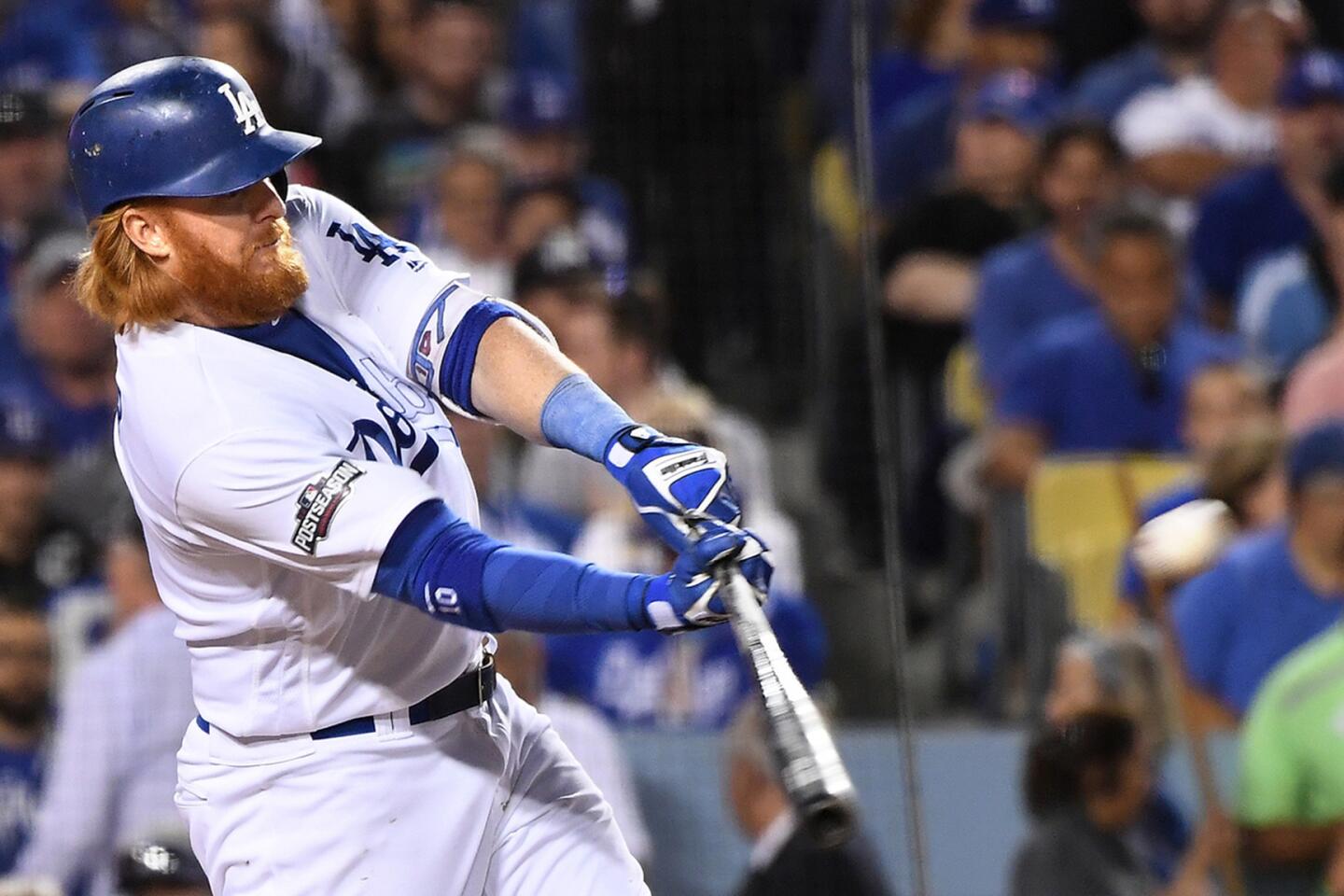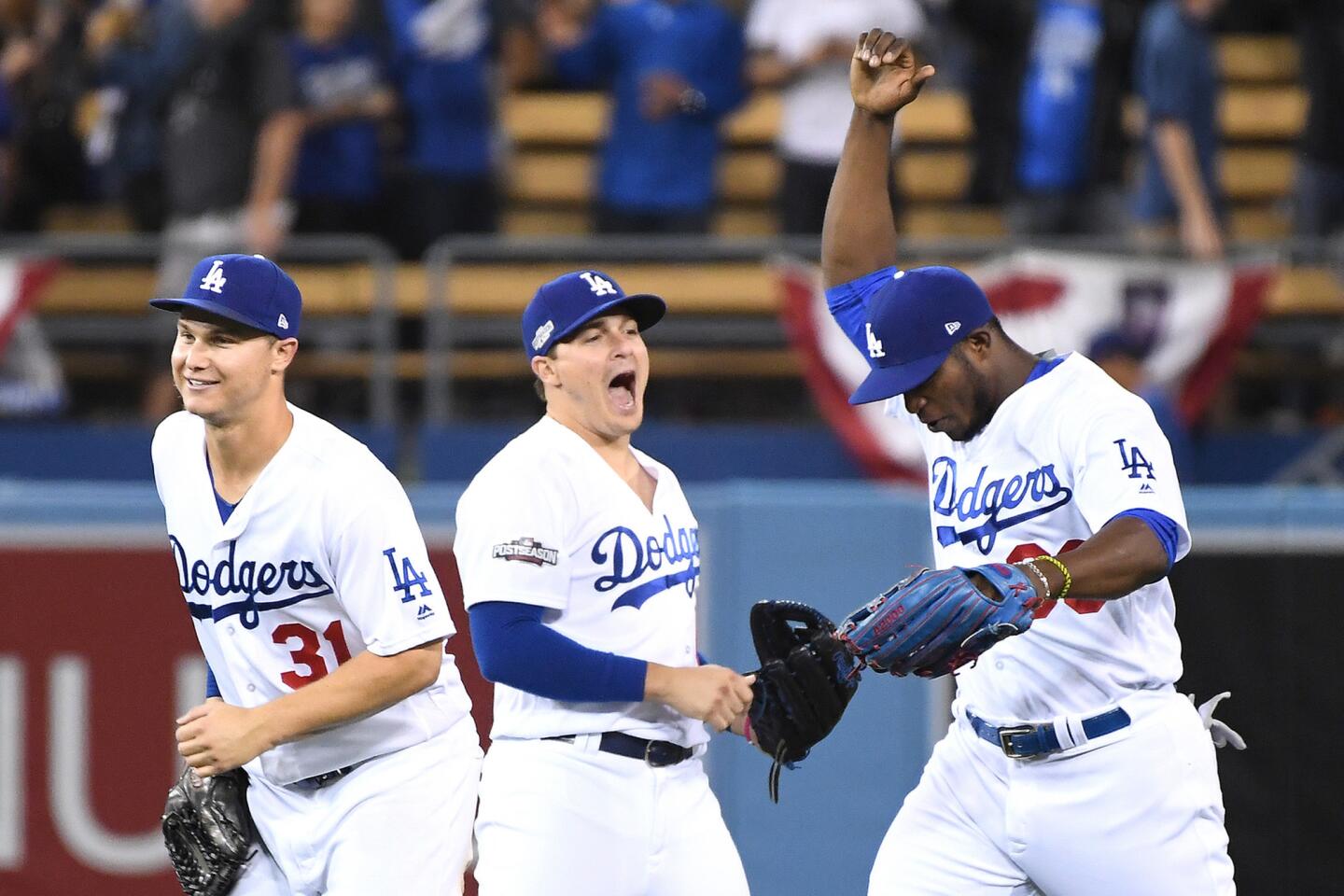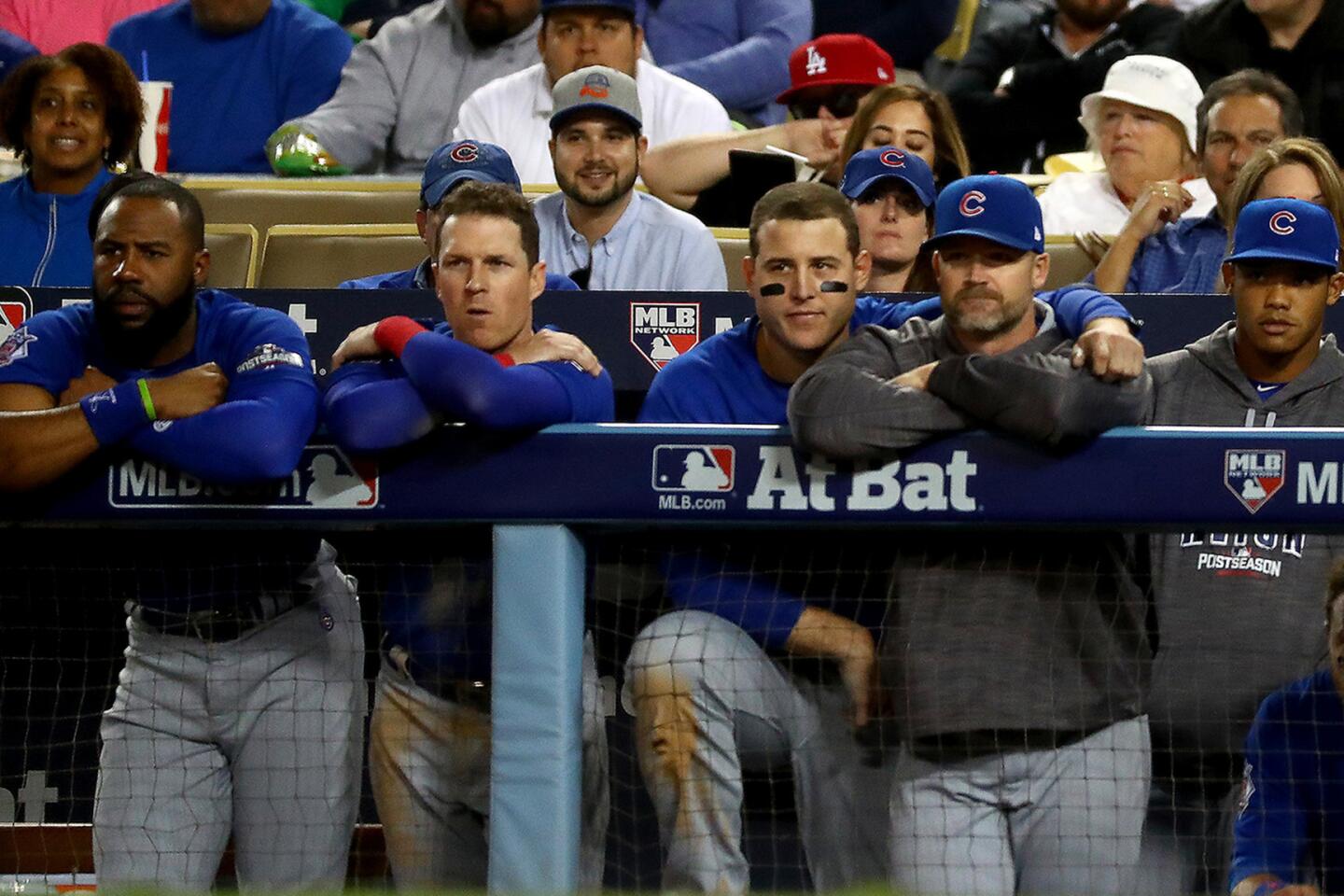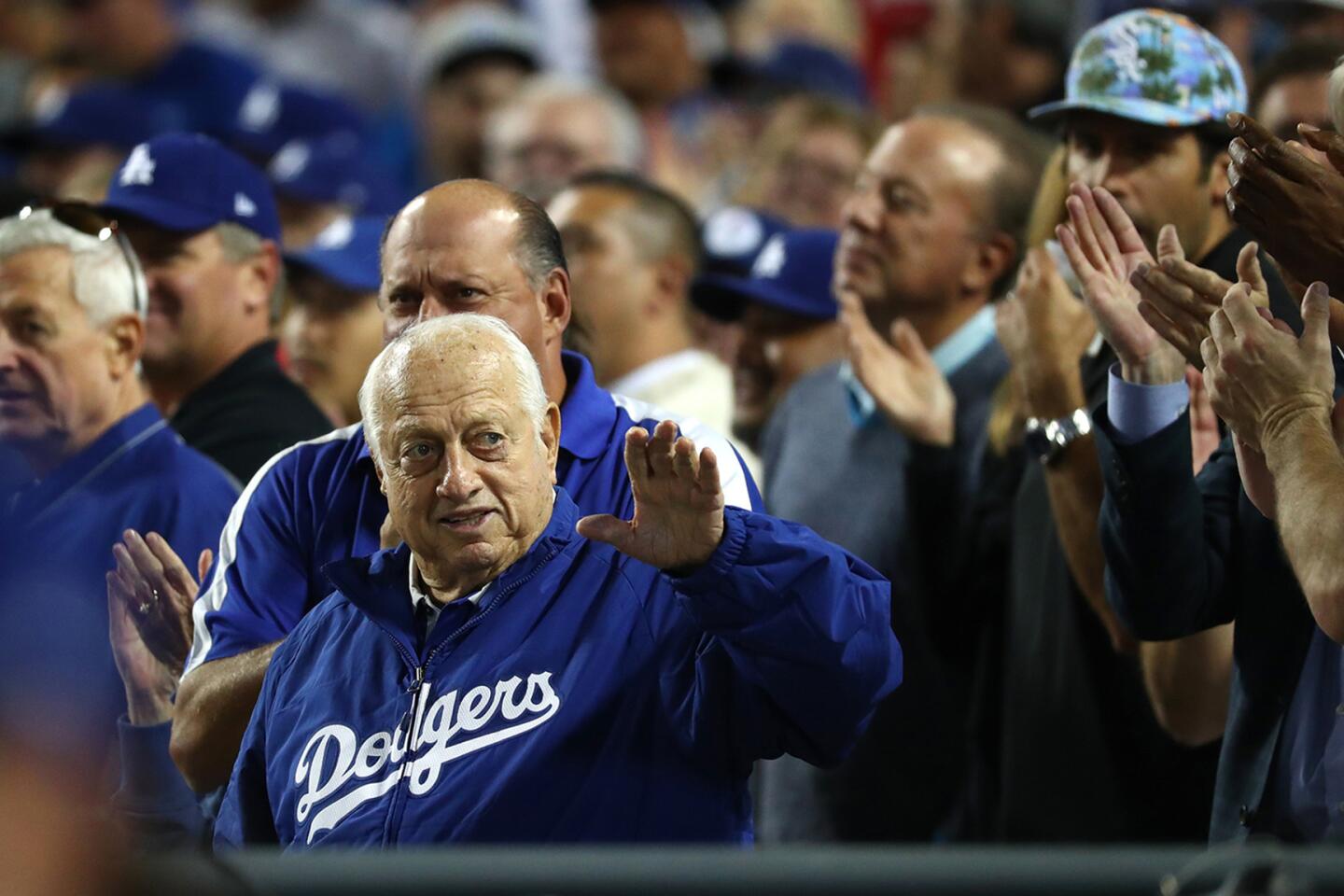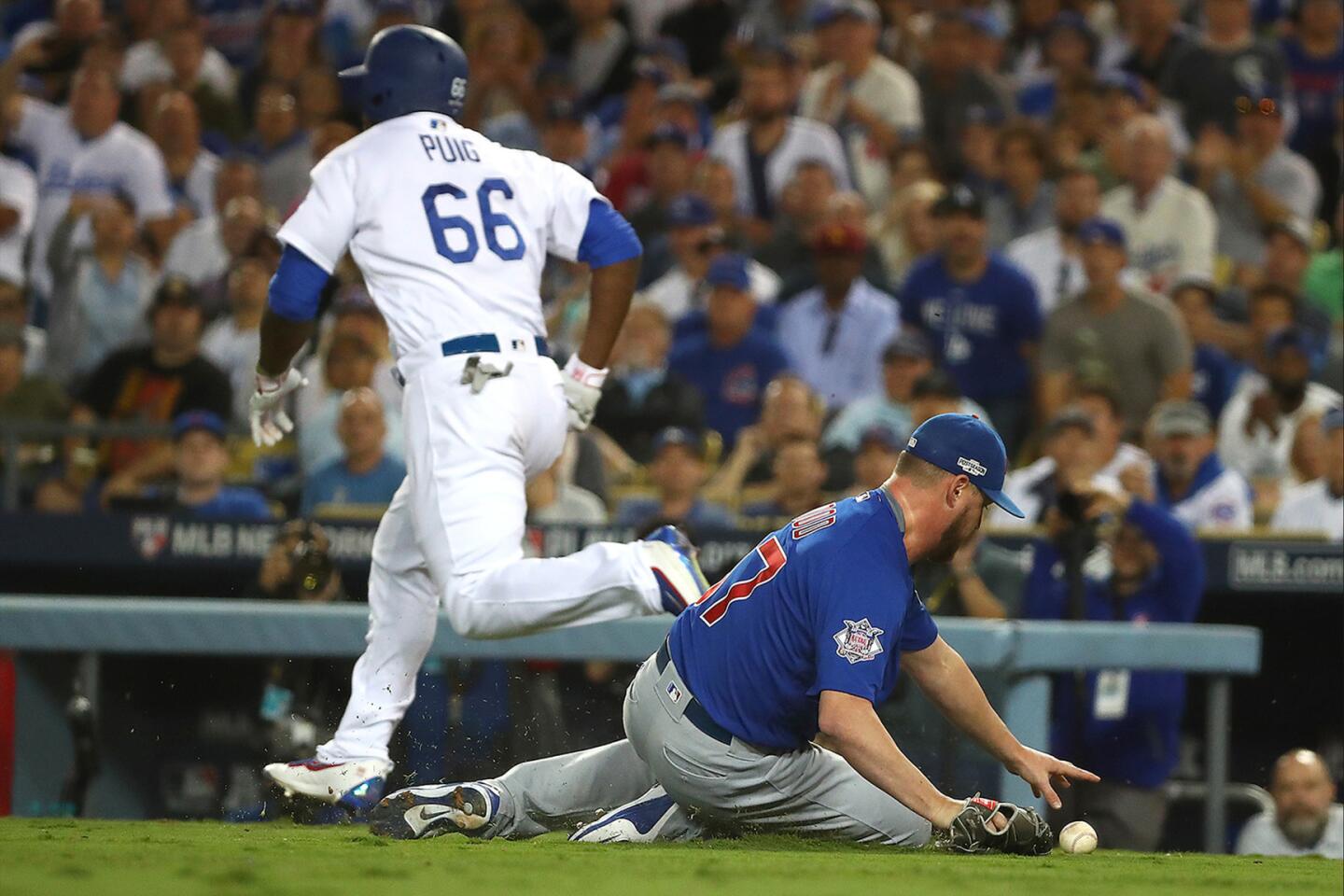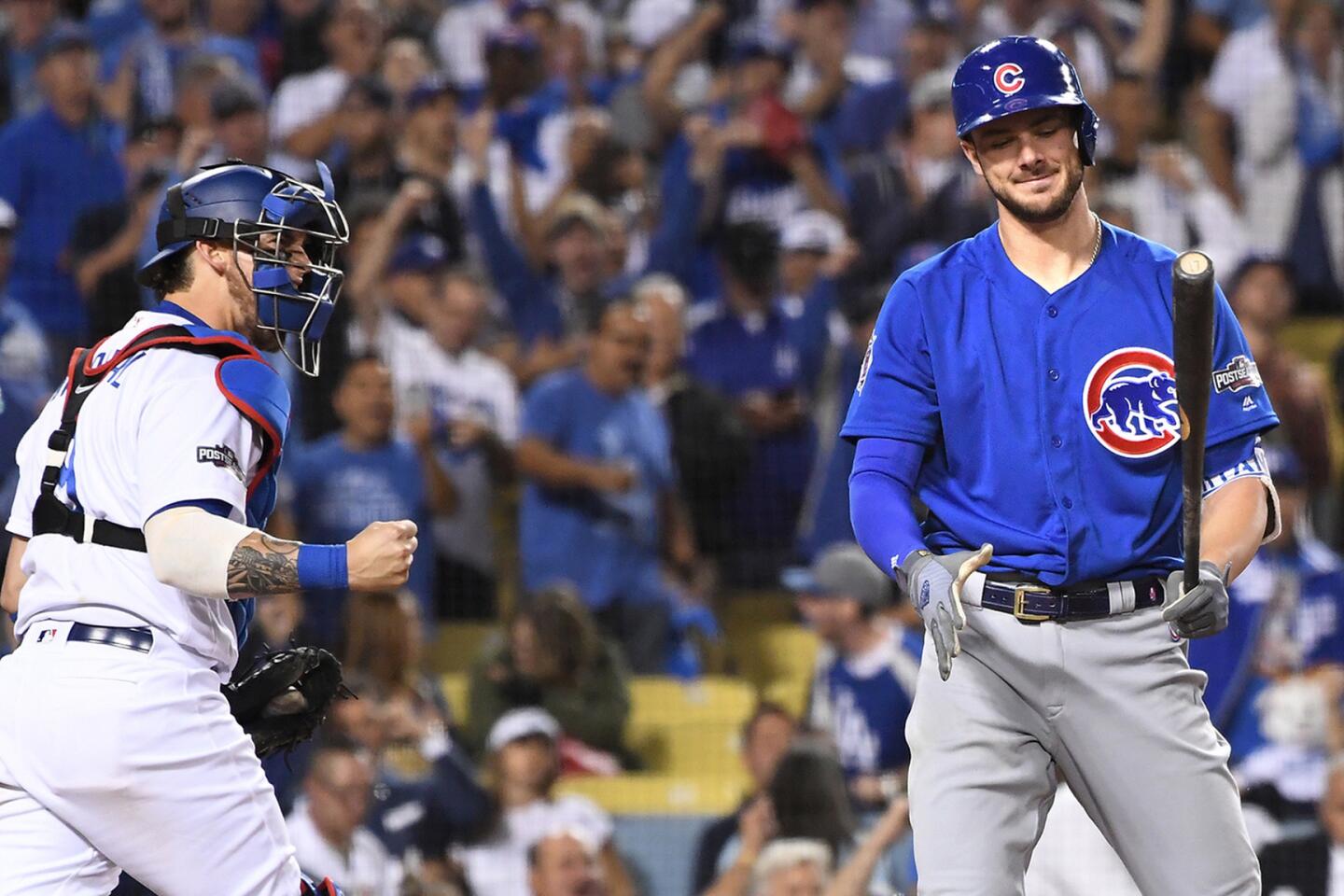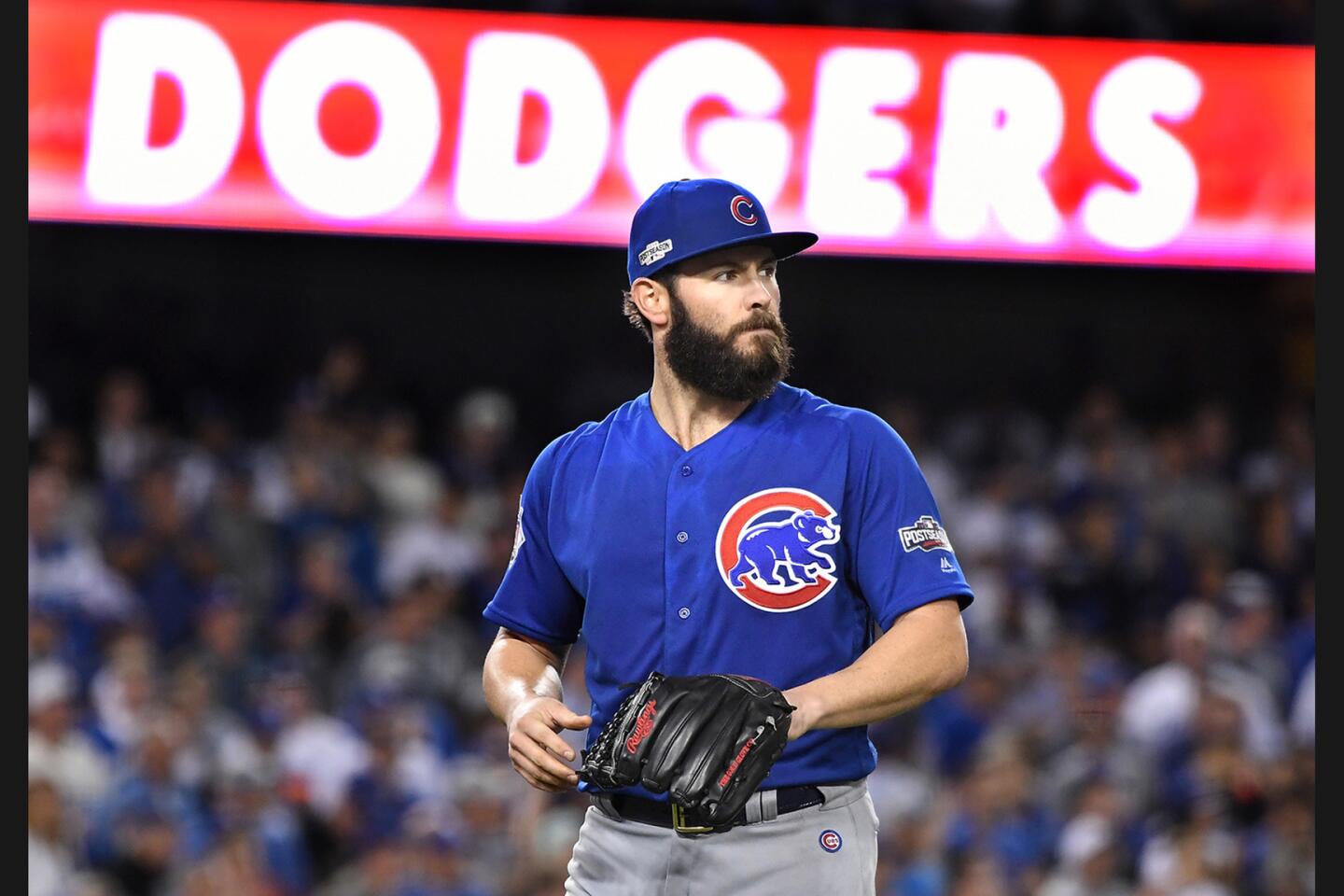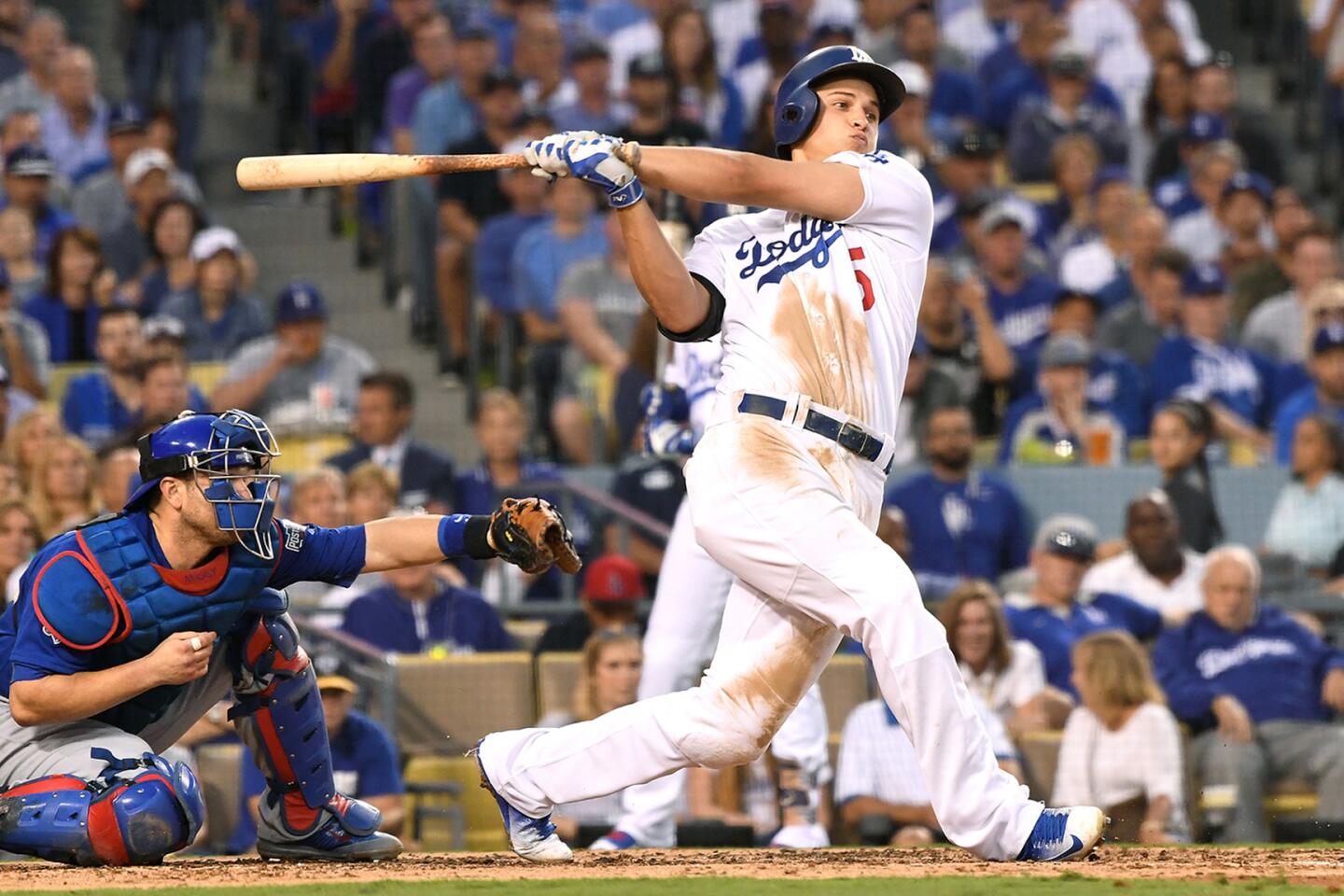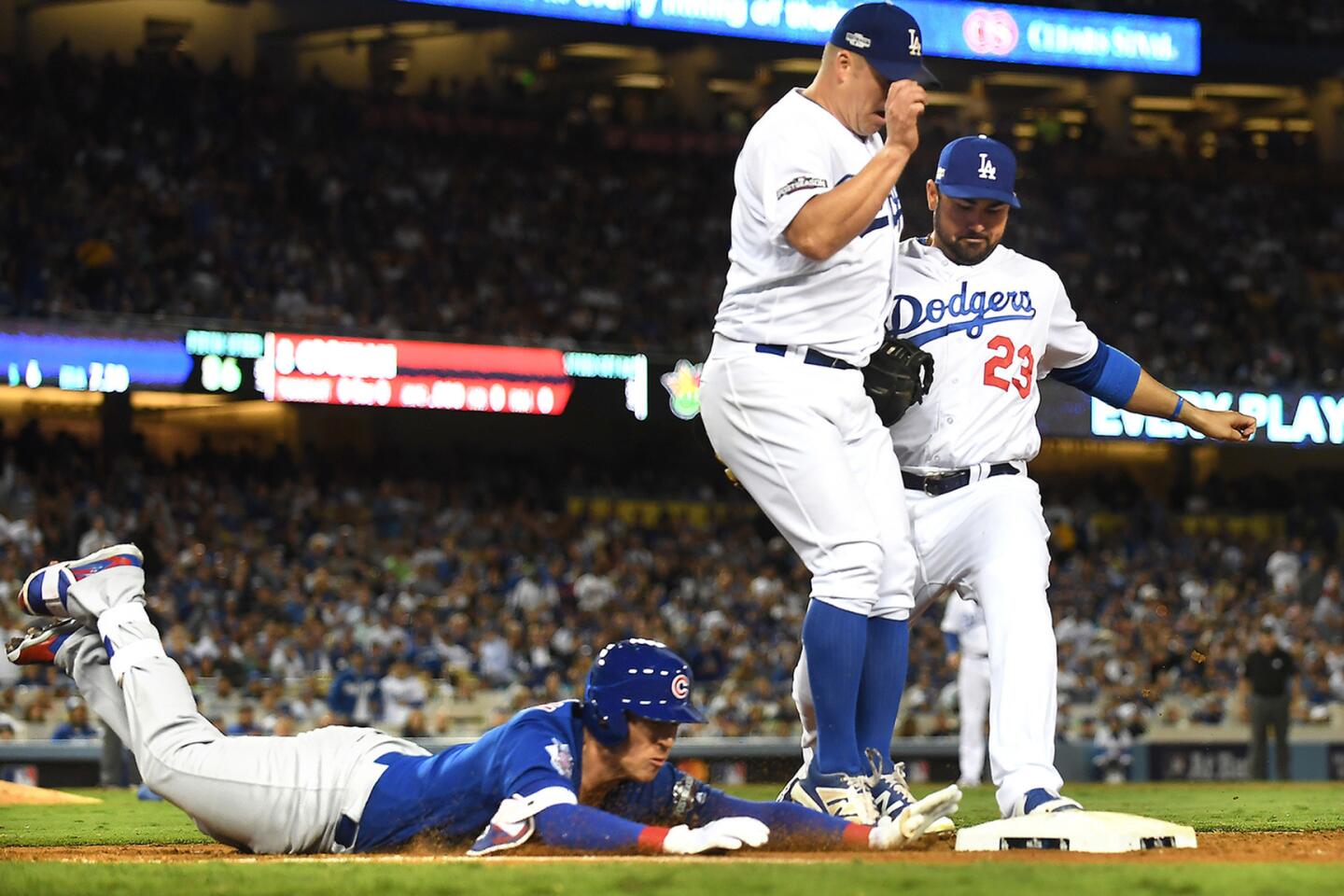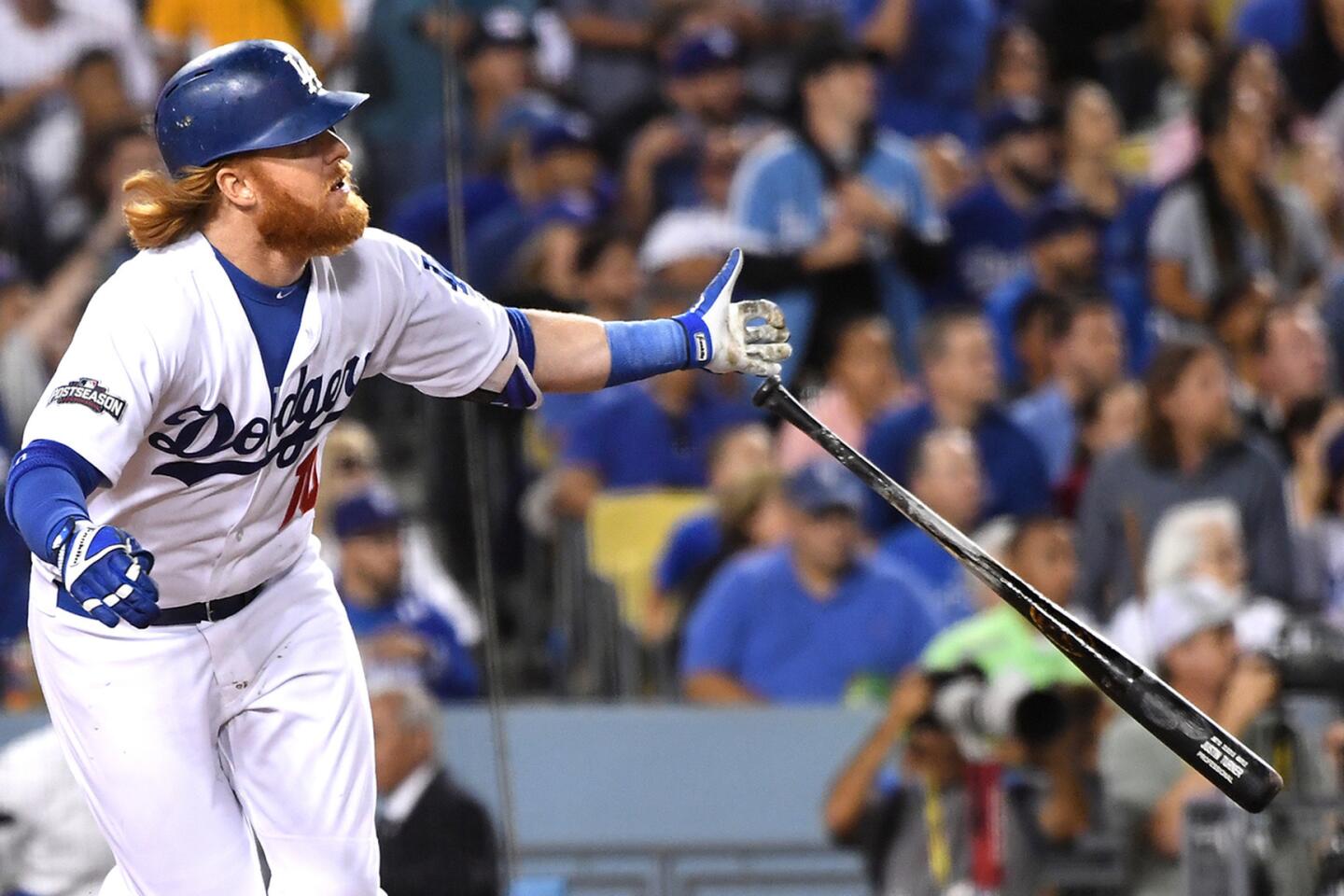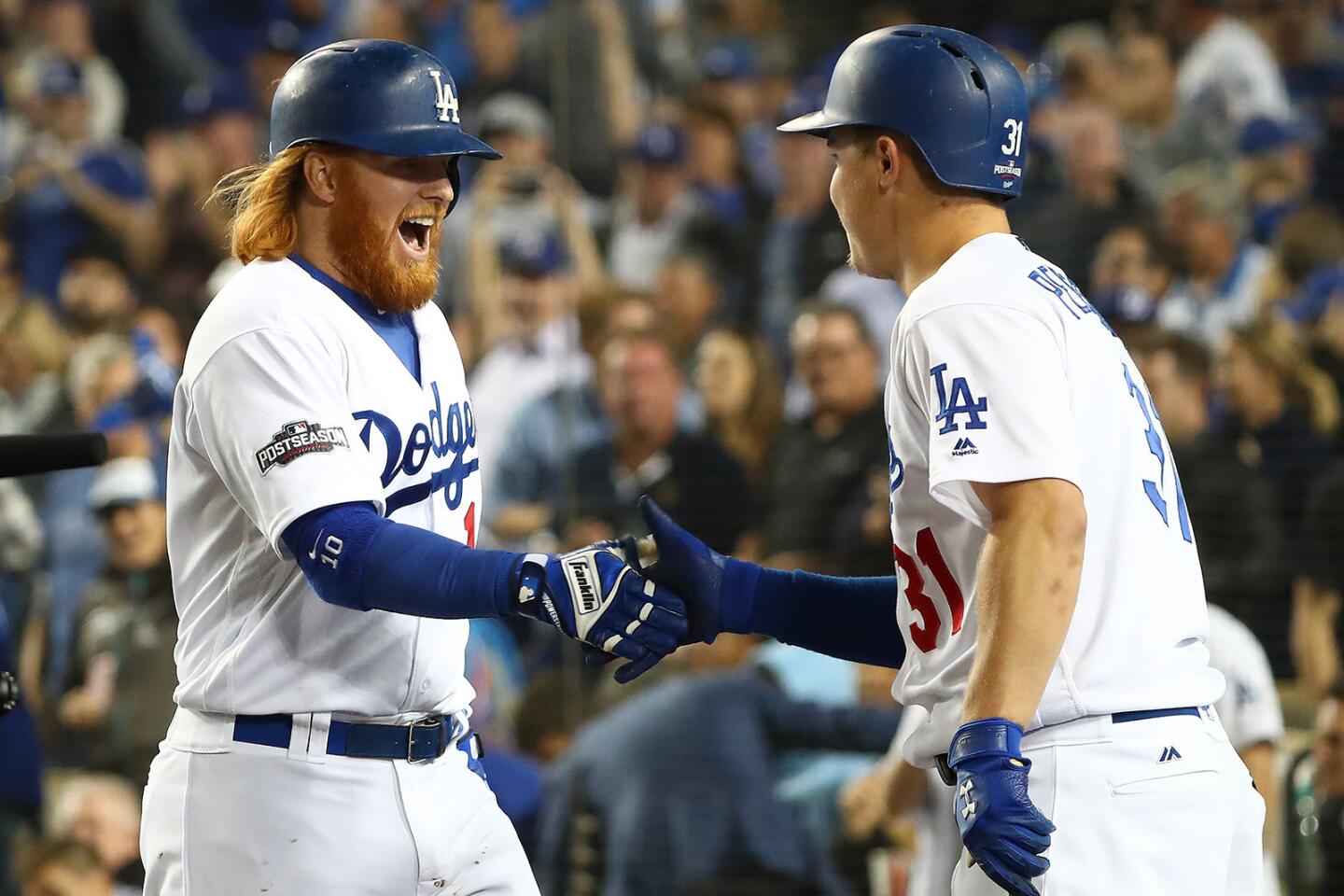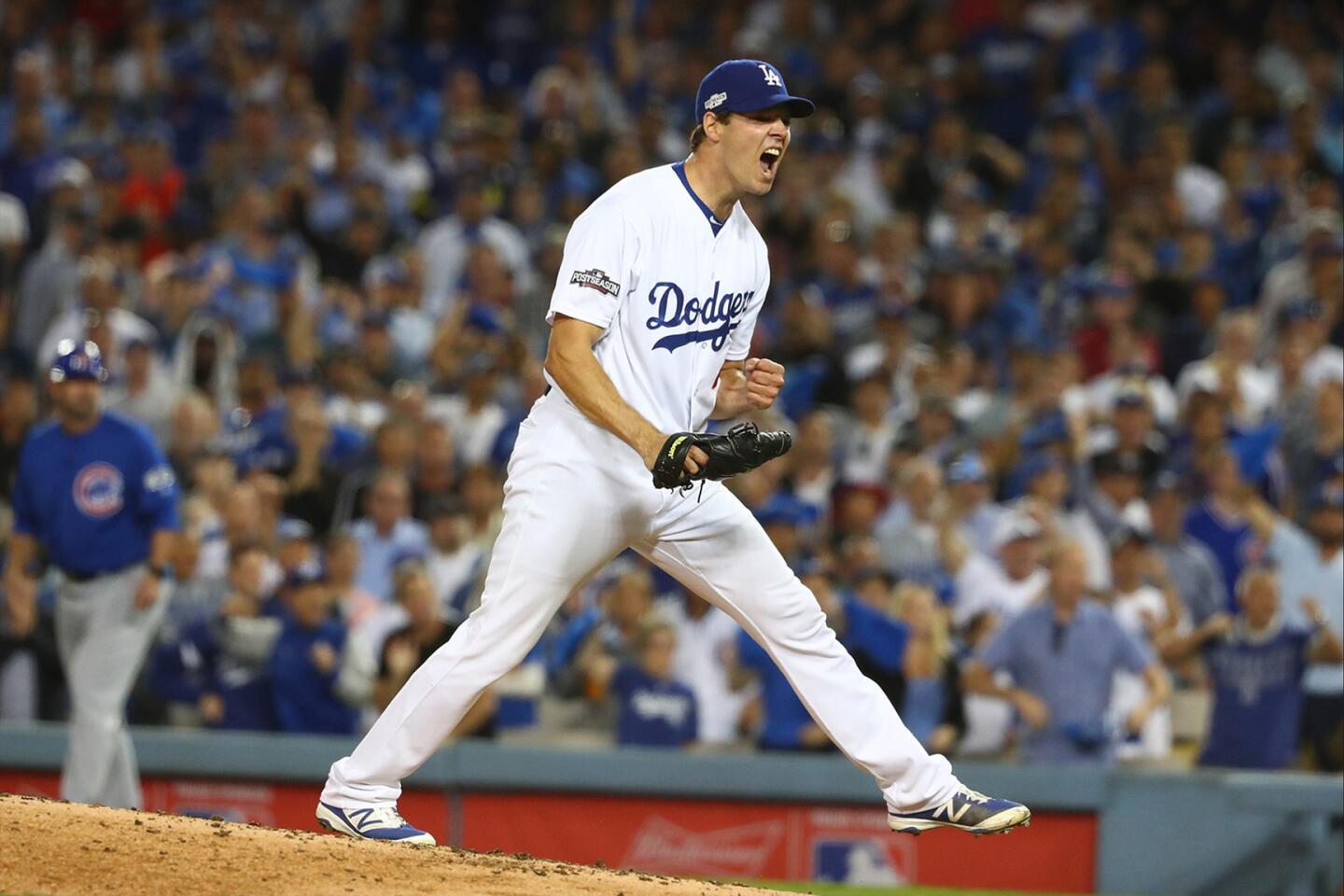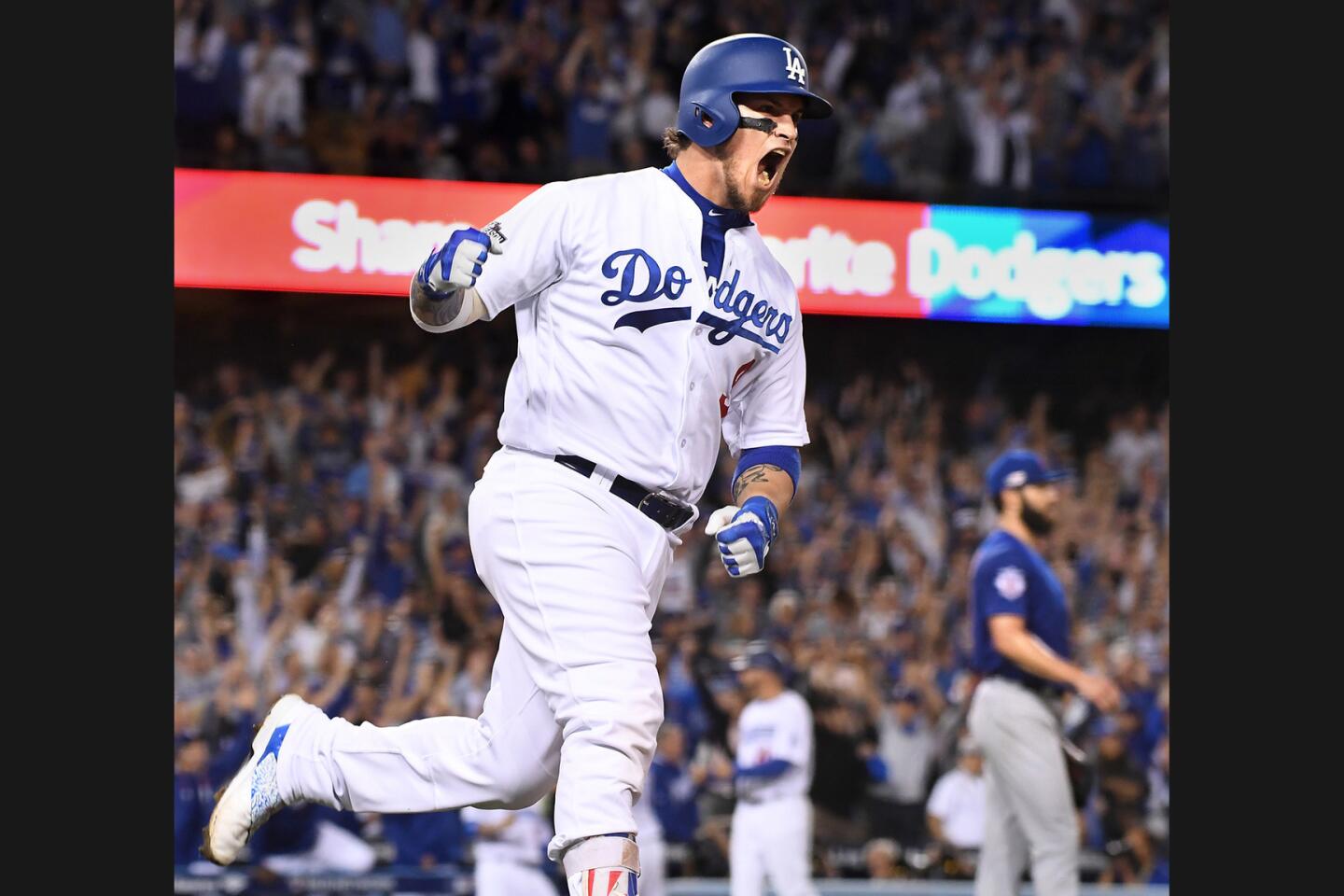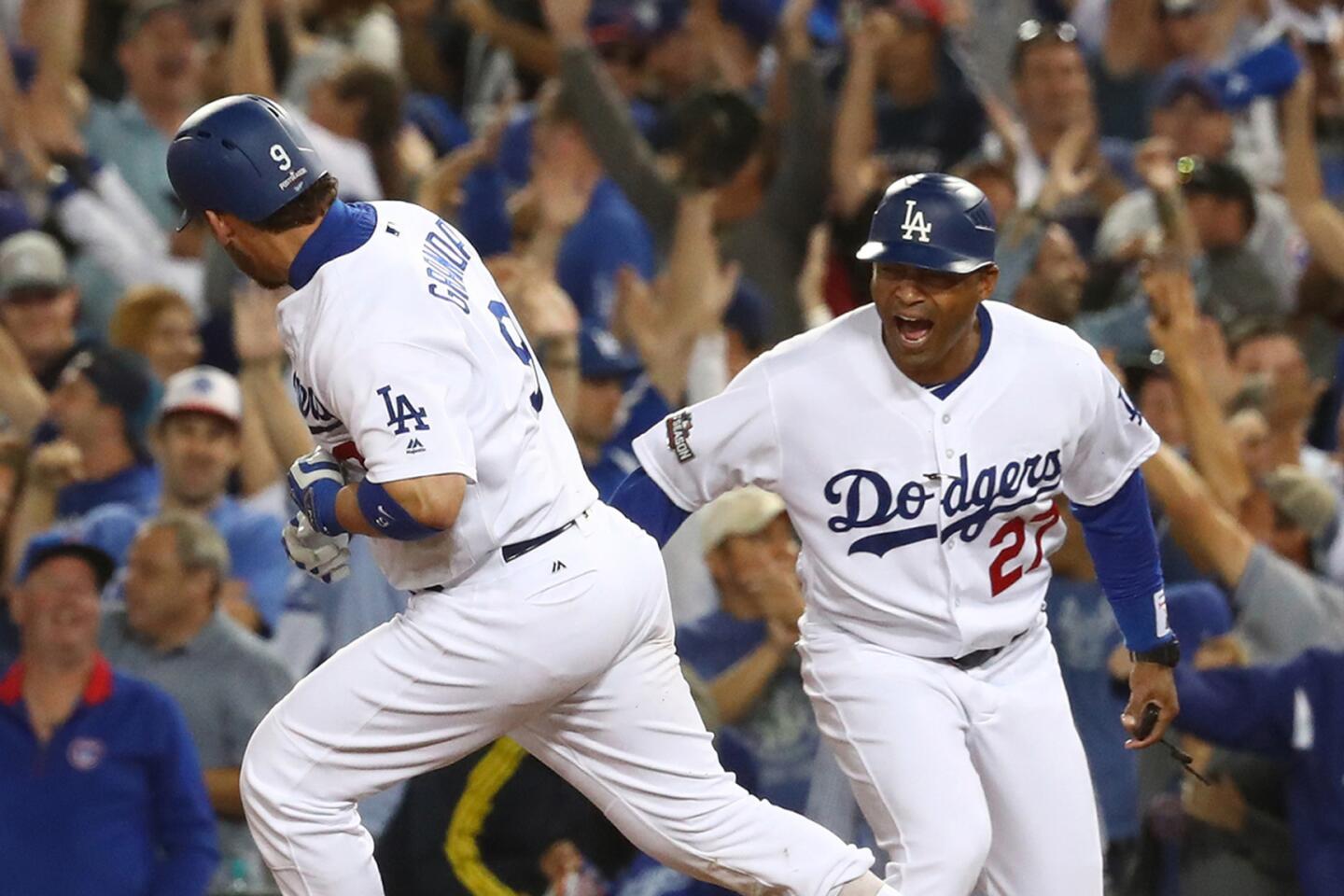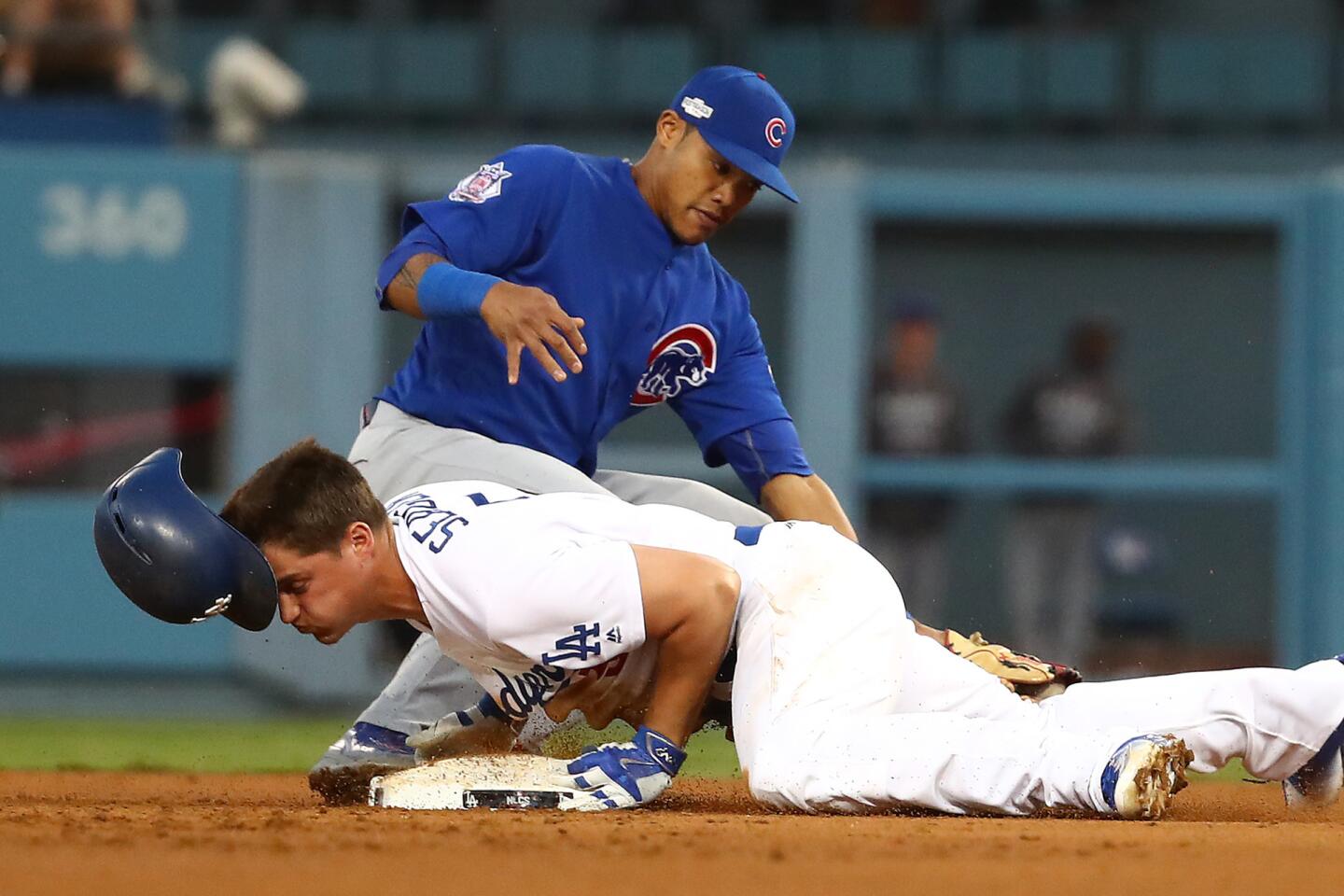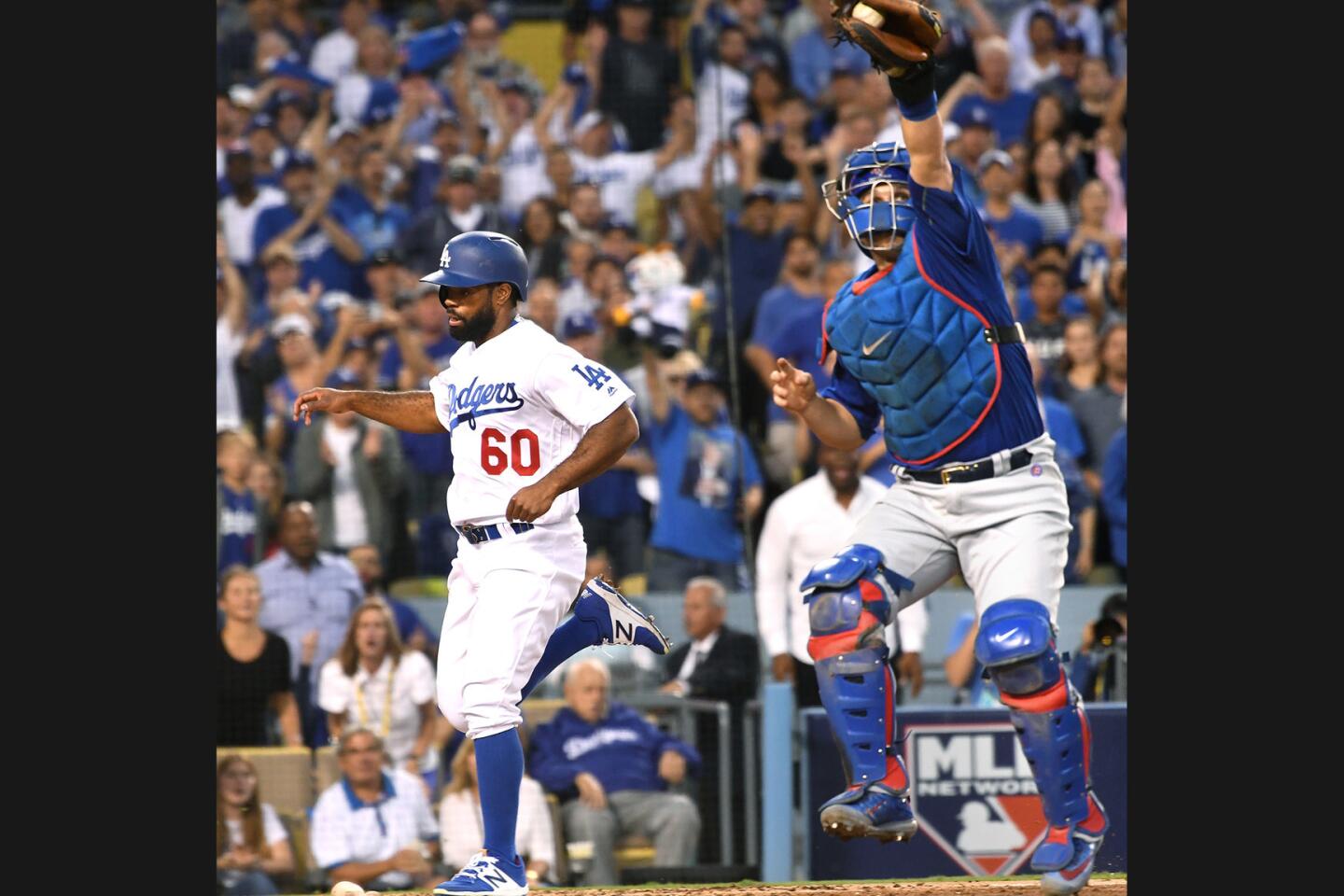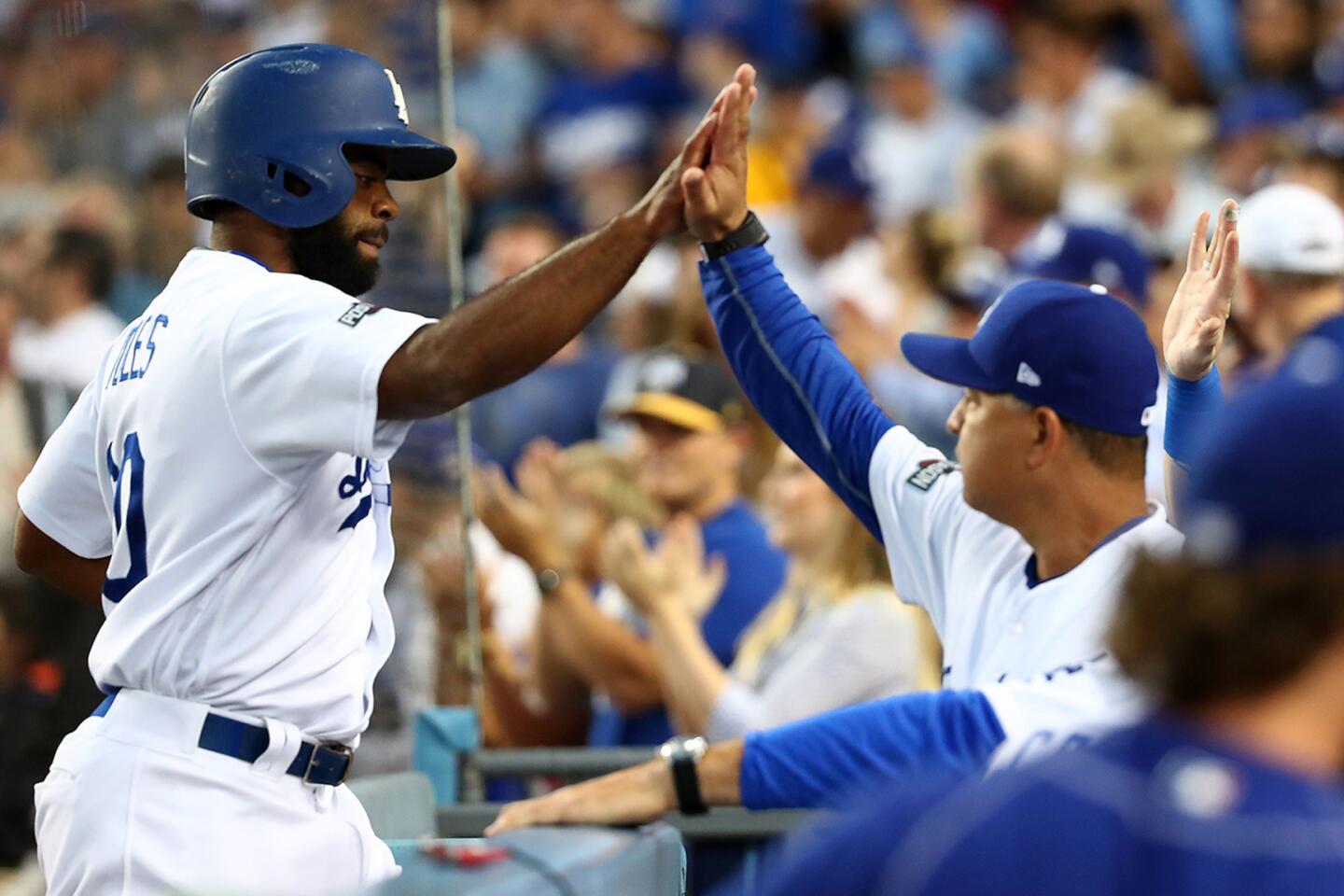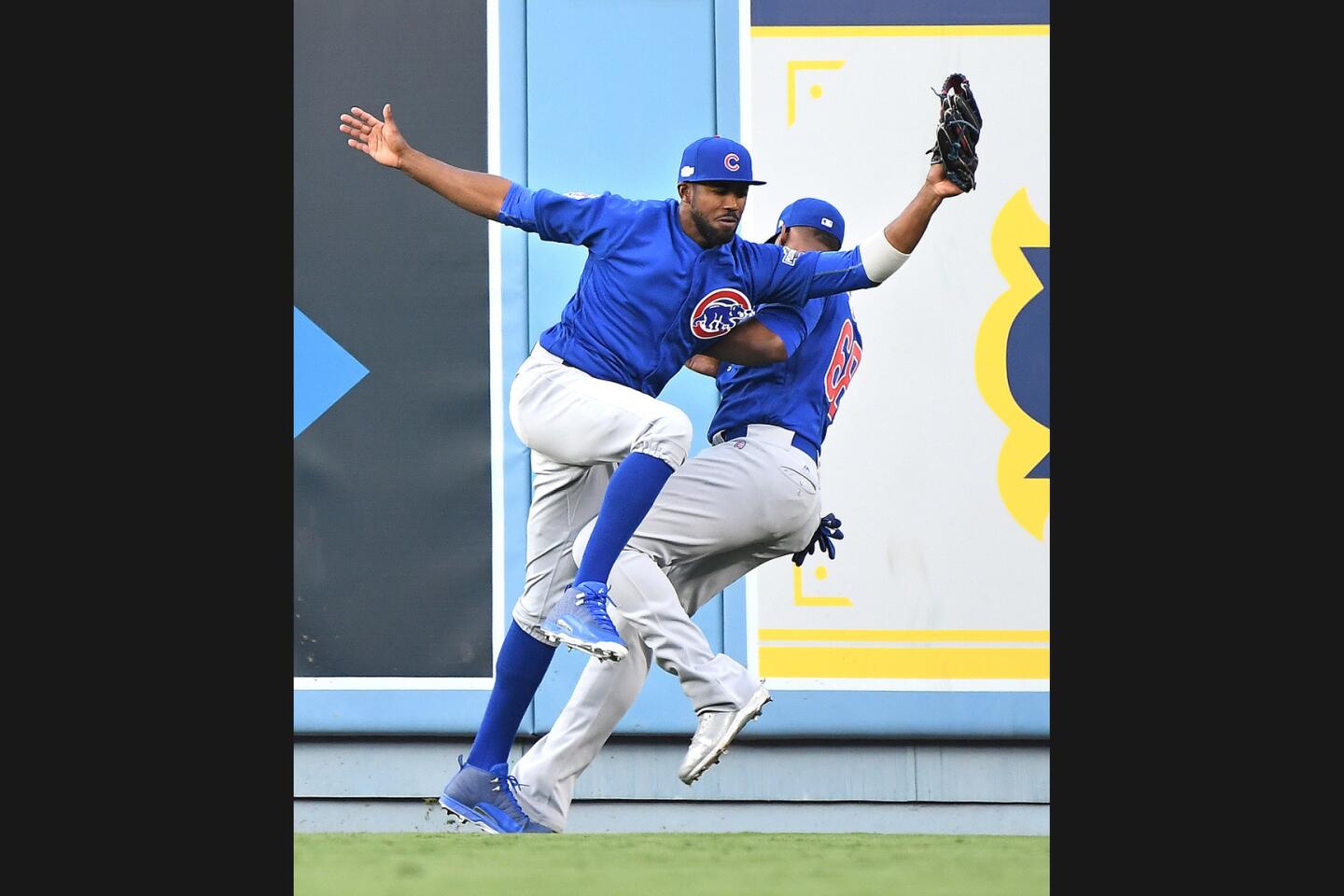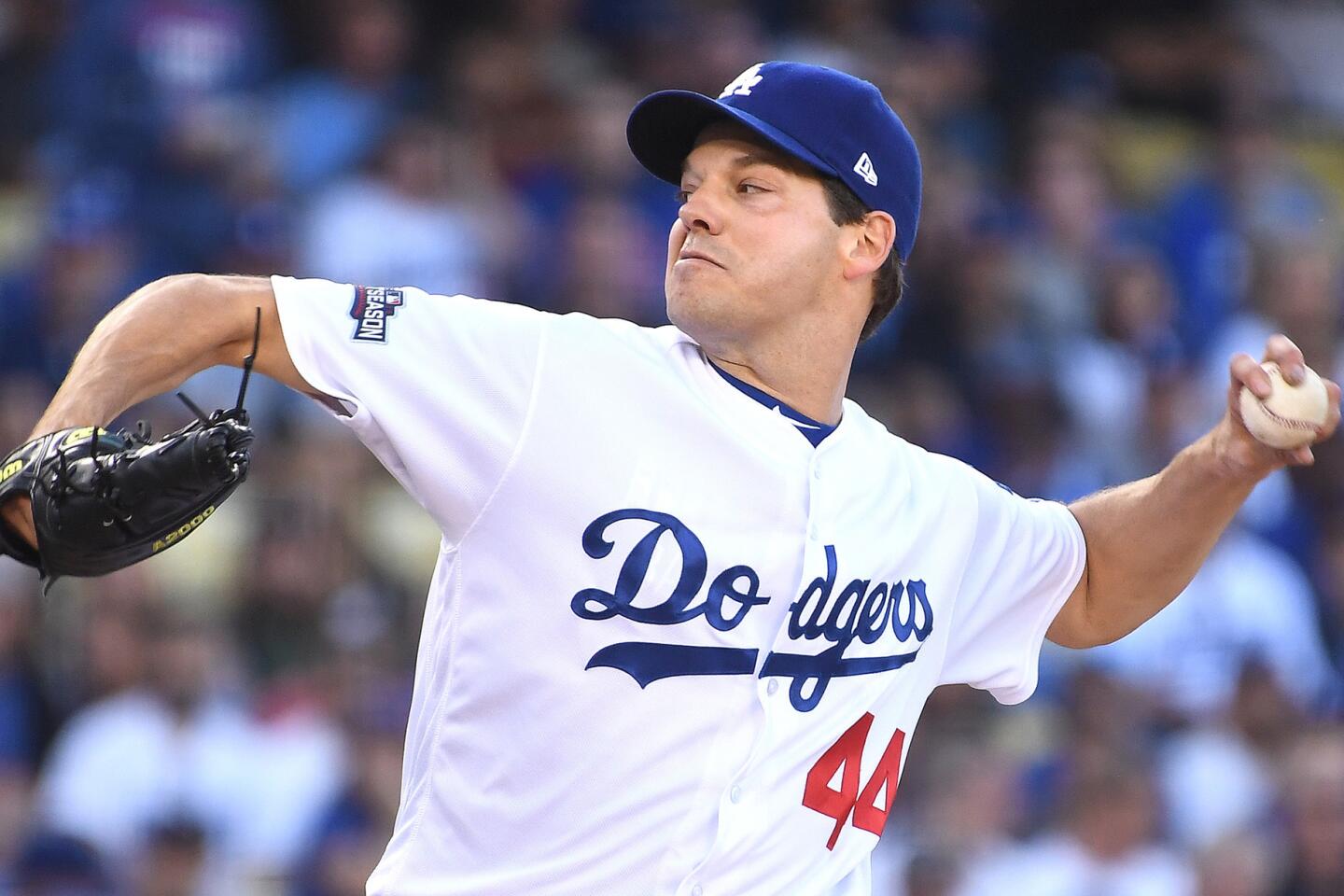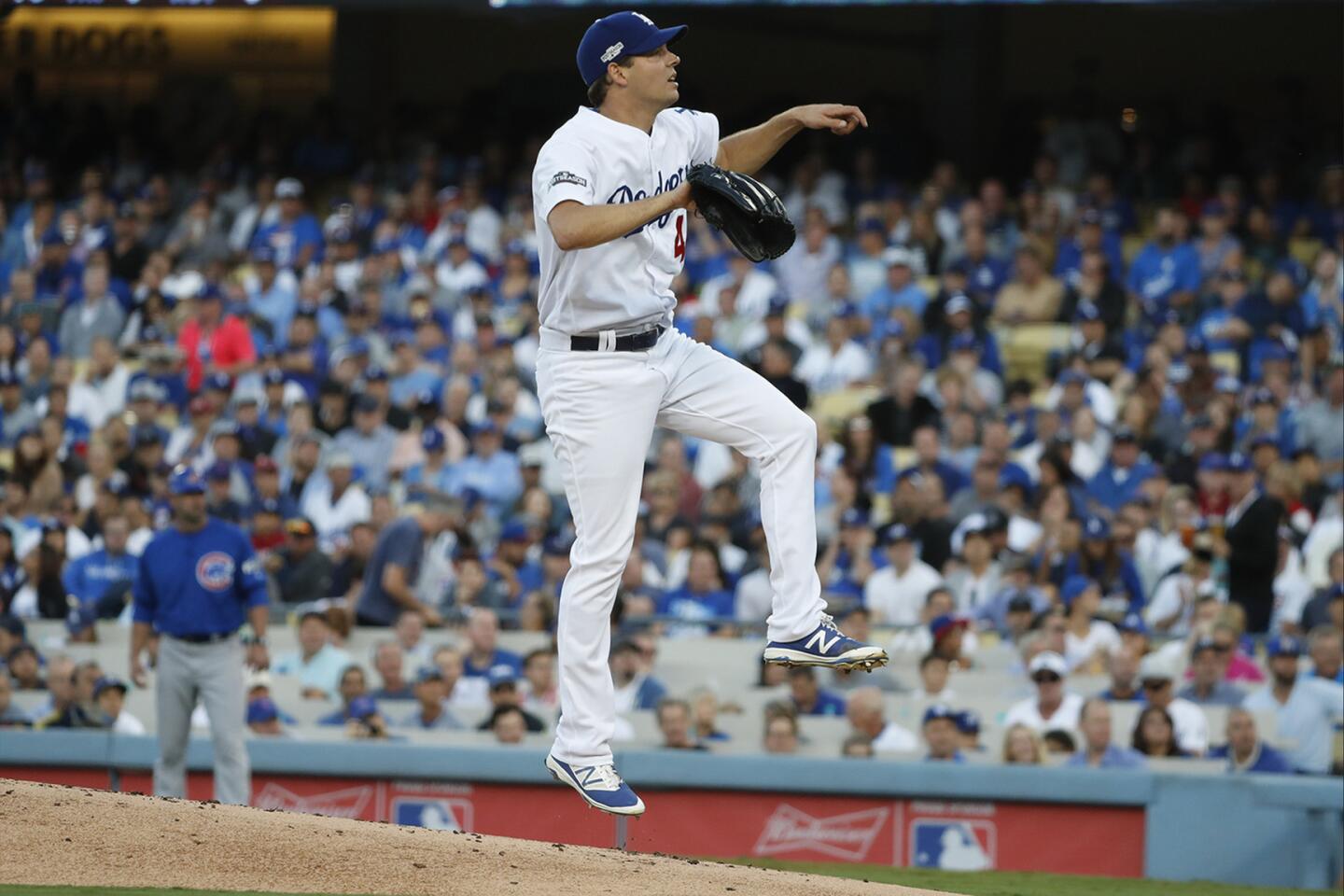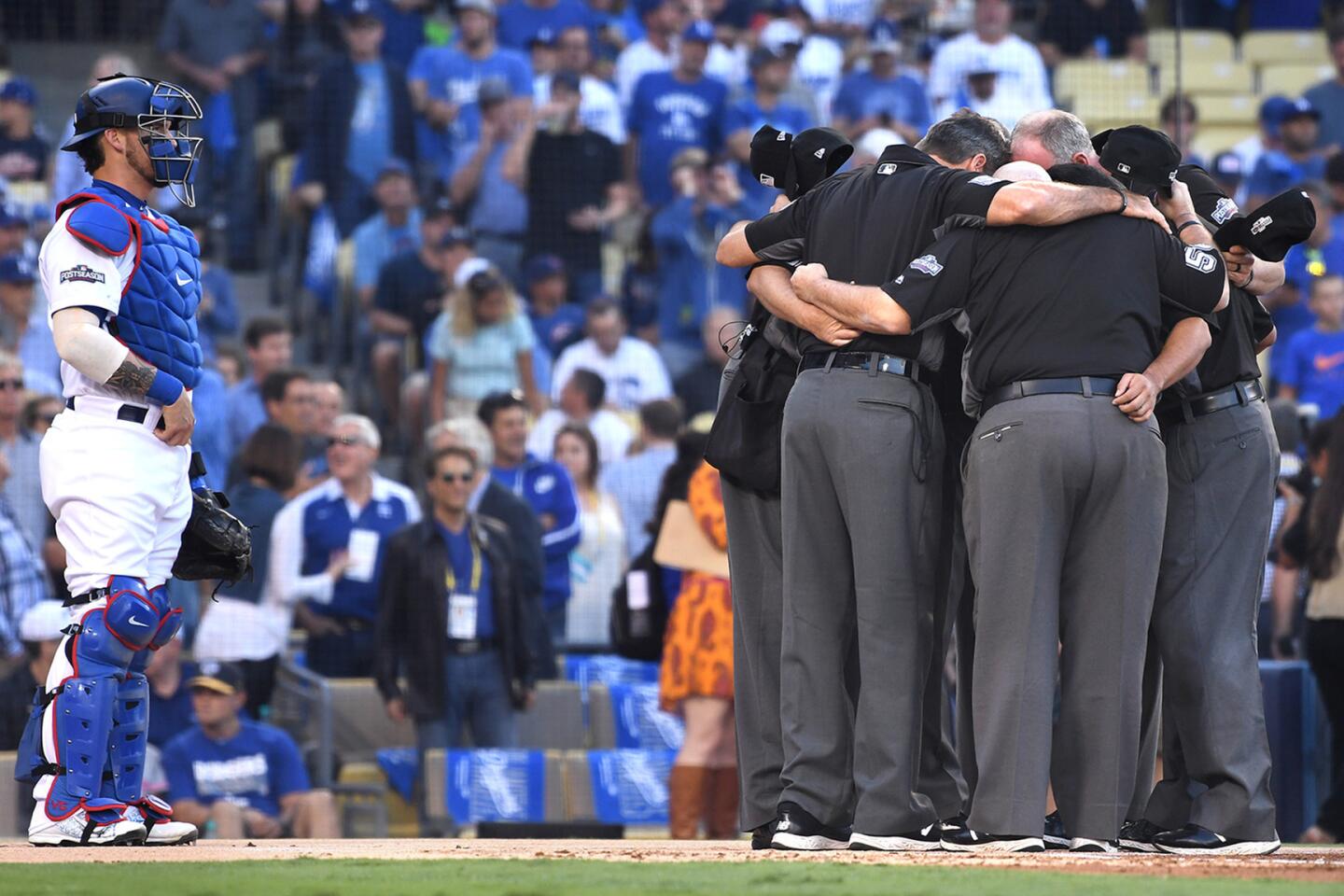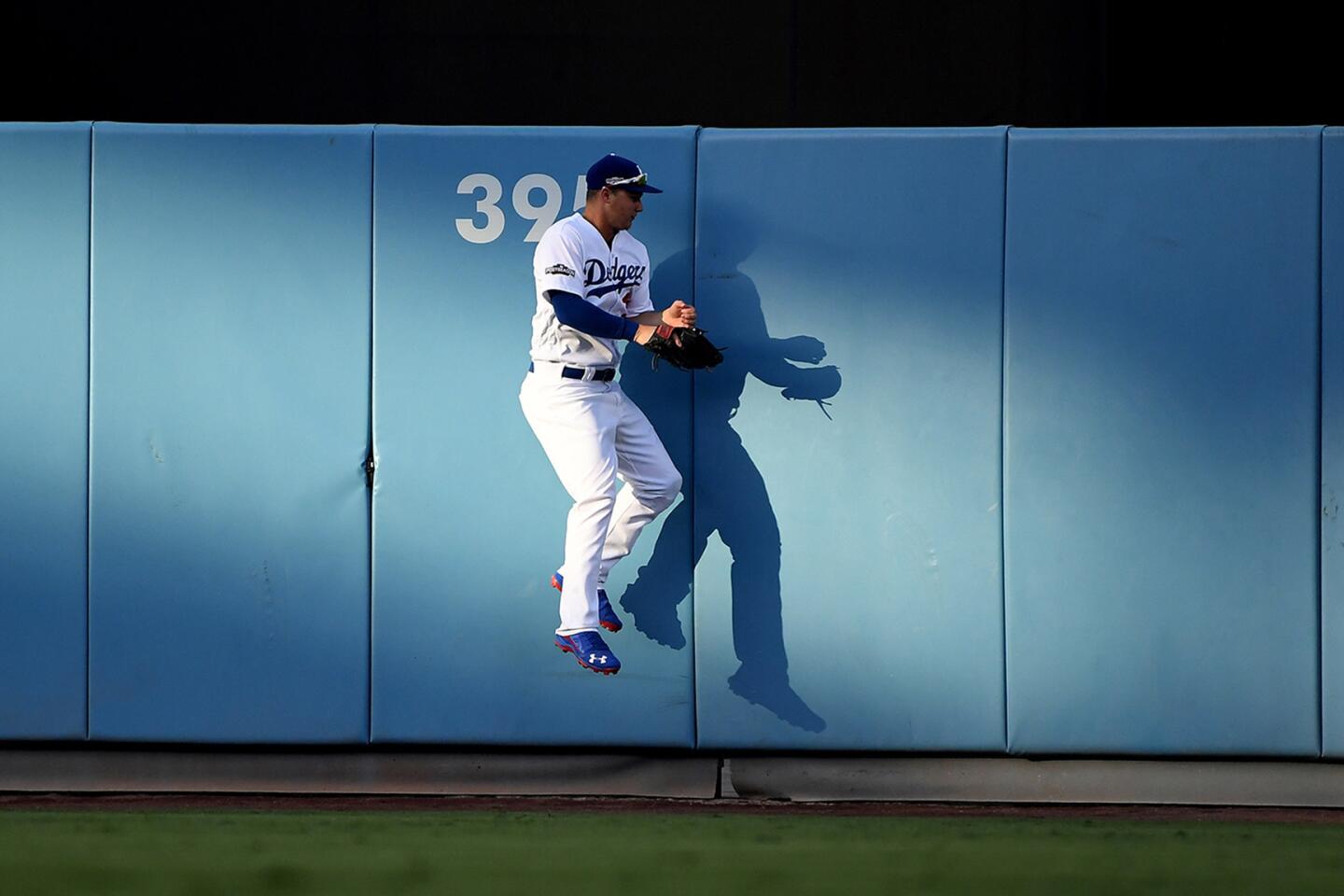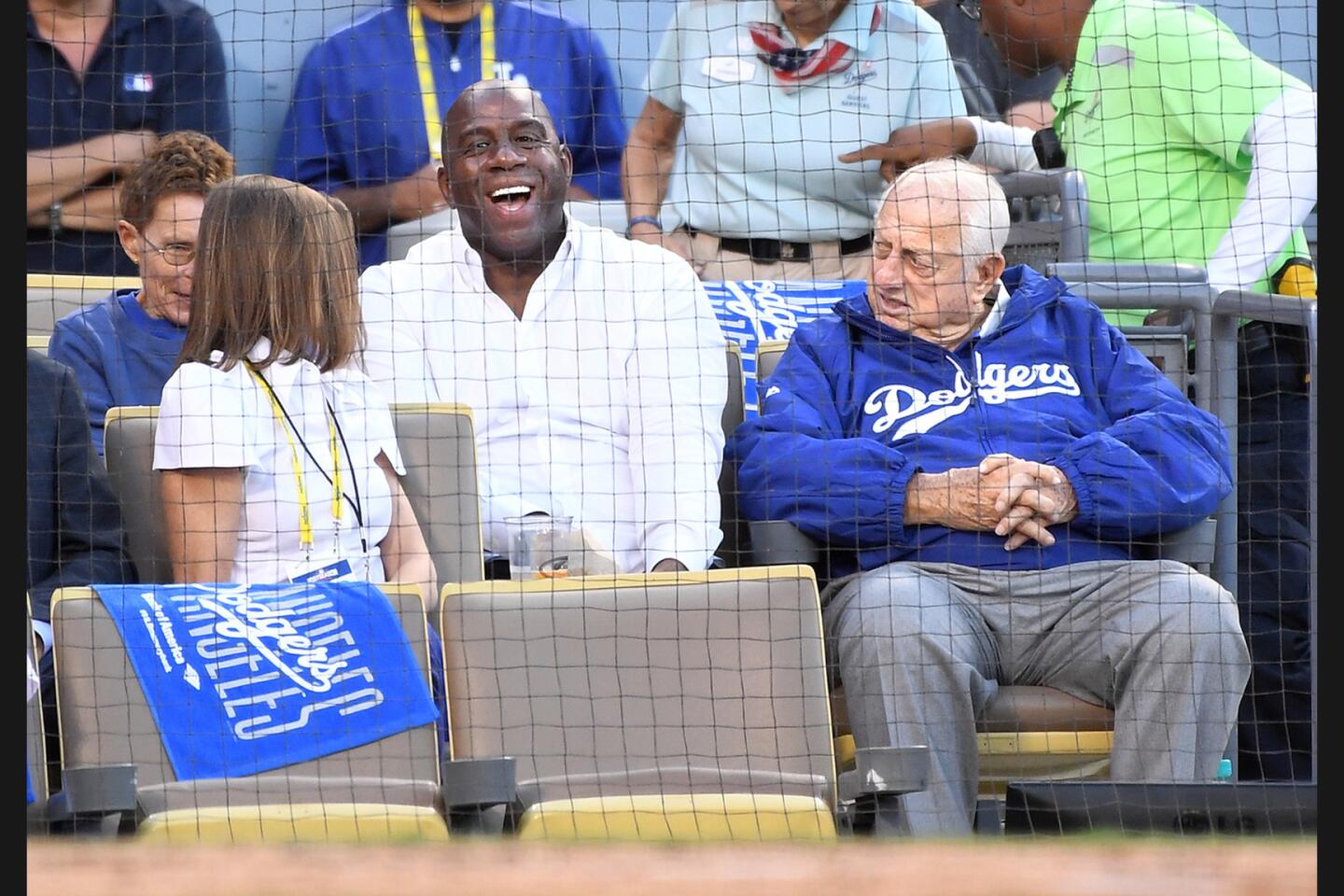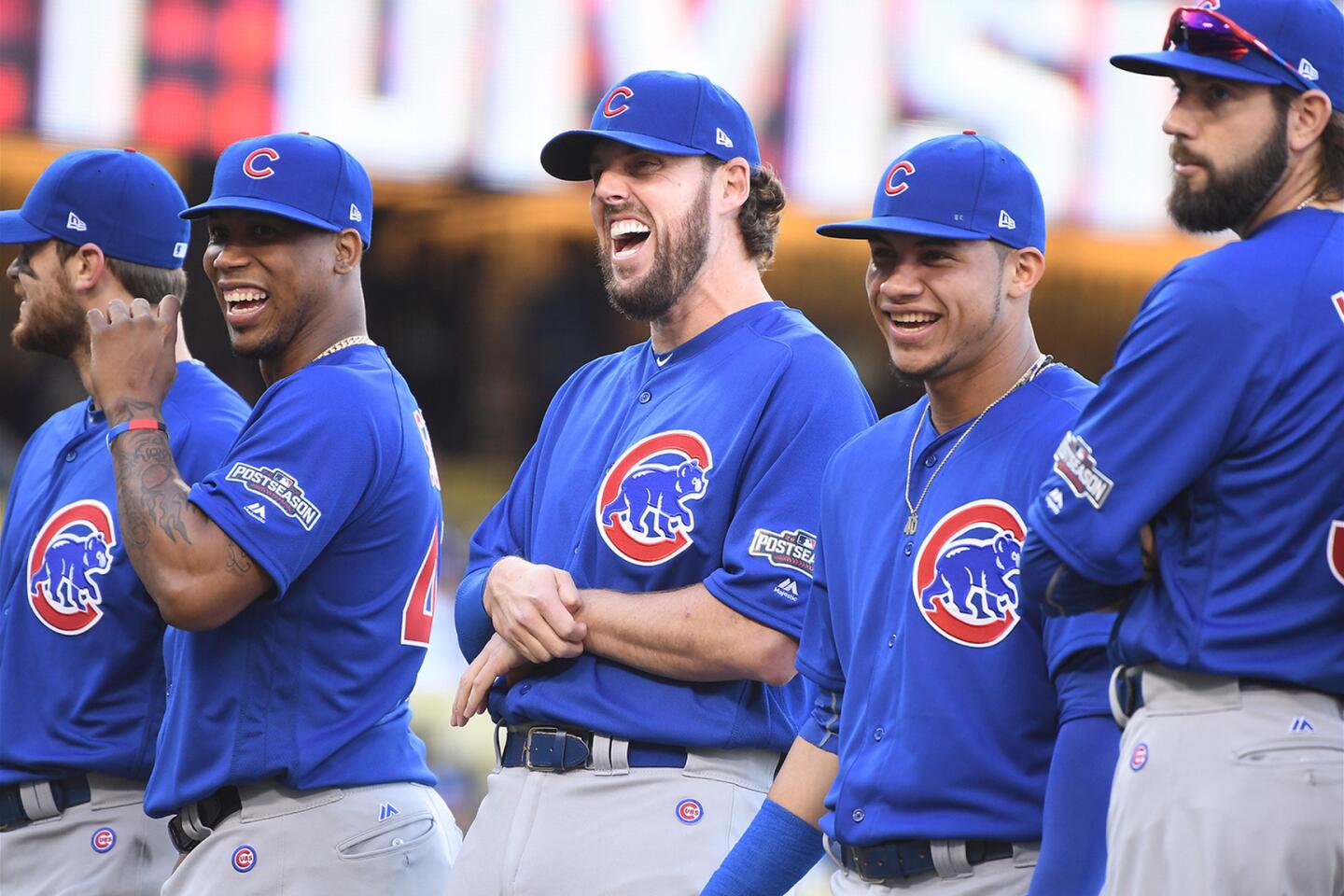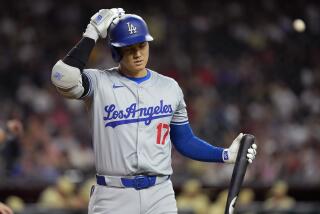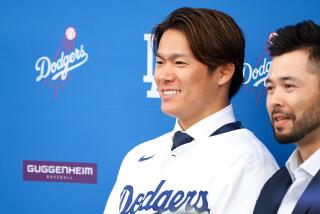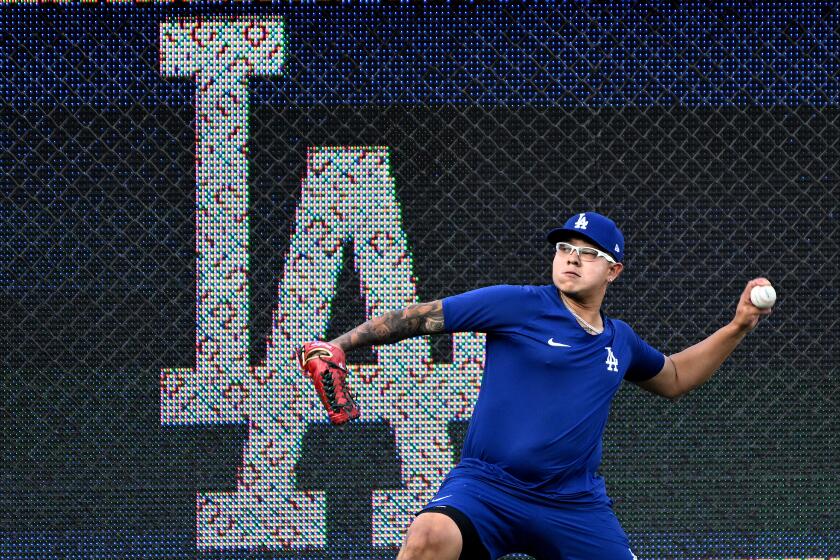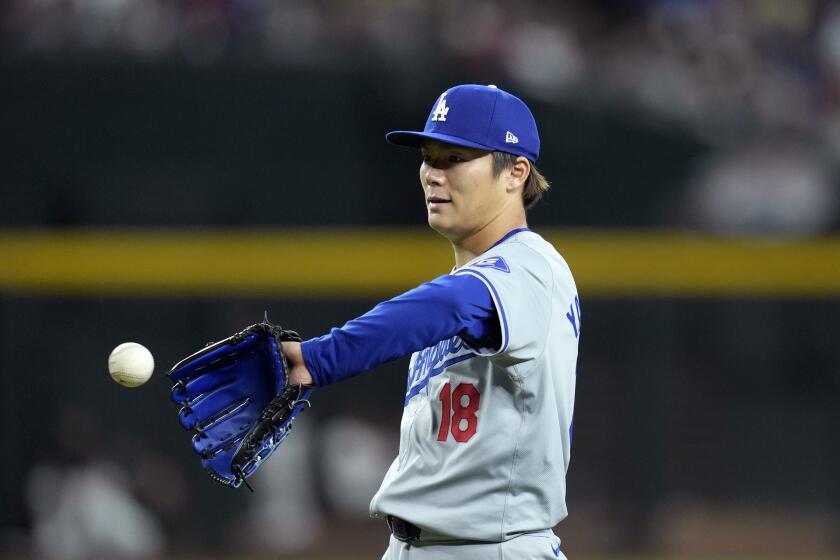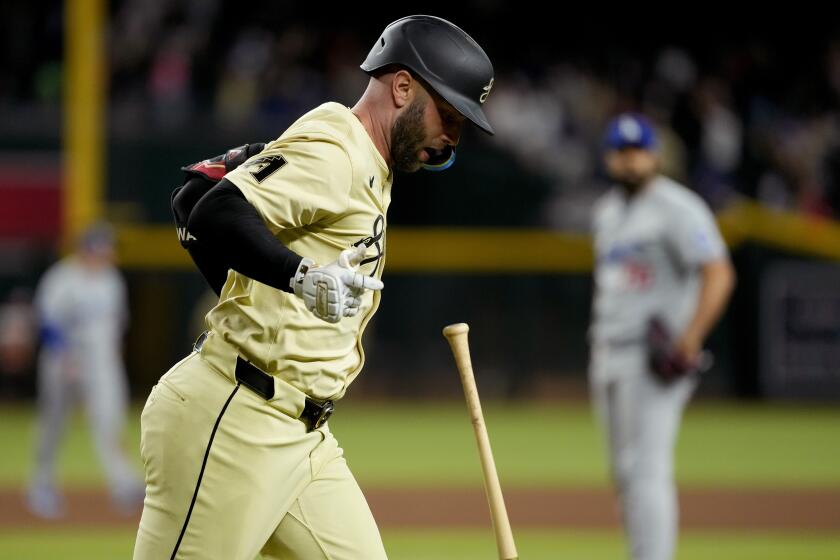Rich Hill’s biggest start works out just fine for the Dodgers
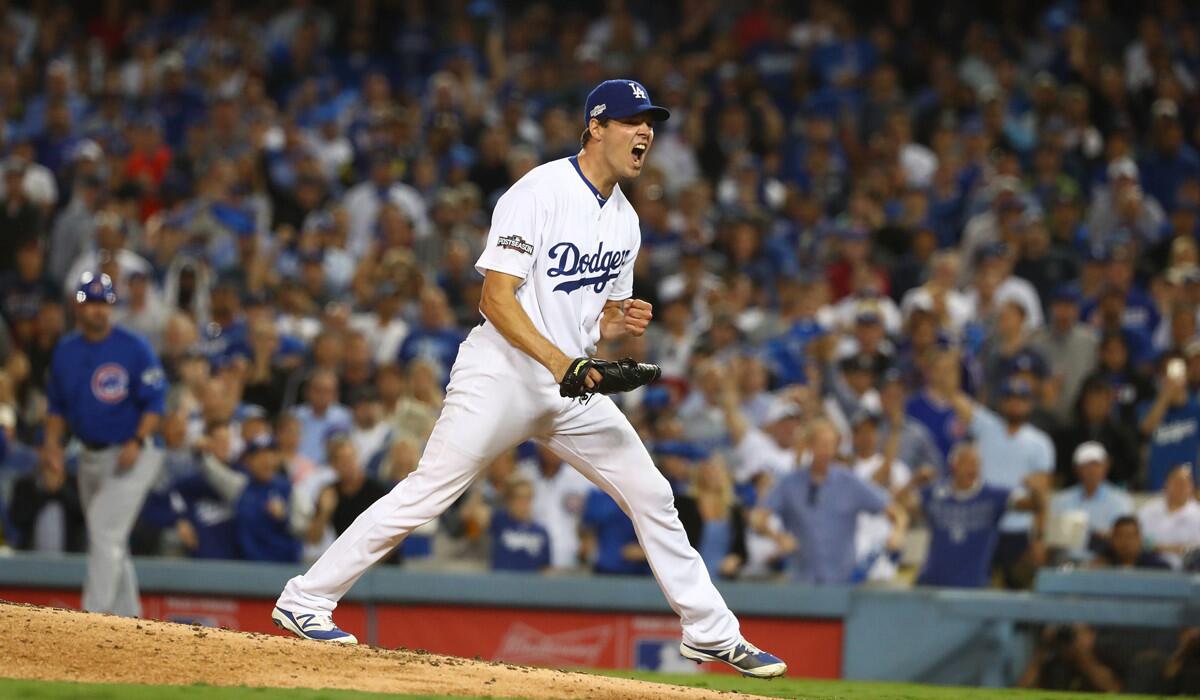
Dodgers pitcher Rich Hill exhults after striking out Cubs’ Anthony Rizzo to end the sixth inning of Game 3 of the NLCS at Dodger Stadium.
Rich Hill brought his staple strategy to his biggest stage yet, but not his standard stuff. The strategy — all he has, all of the time — superseded everything else in the Dodgers’ 6-0 Game 3 victory over the Chicago Cubs on Tuesday night at Dodger Stadium.
“It’s interesting,” Dodgers Manager Dave Roberts said. “Of the starts I’ve seen him this year, that wasn’t his best stuff. I think that curveball command wasn’t as I know he would like it. But that just shows he goes out there and competes.
“His preparedness, his guts really kept those guys at bay.”
This was the most important start of Hill’s 15-season professional career, the 36-year-old acknowledged afterward. And the circumstances conspired against him: The club desperately needed innings, with two games scheduled before a day off and a 20-year-old rookie starting Wednesday. Yet Hill had not finished six innings since his perfect-game bid for history in Miami nearly six weeks ago.
He relied early on his fastball more than usual, throwing it seven times in 11 first-inning offerings. In the second, his curveball command escaped him, and he issued two walks in a span of three hitters. After a passed ball, there were two runners in scoring position with one out.
“It’s over with,” Hill said, recounting his perspective from the moment. “You can’t control it. You move on. You execute the next pitch, and you execute the pitch after that. You continue to execute until the ball gets taken out of your hand.”
Hill would strike out Addison Russell and induce a weak groundout from Miguel Montero to end the tense, 30-pitch inning. As he walked off the mound, he mopped his mouth with his uniform.
“Once his curveball is just missing for strikes, you can’t really think about it,” Dodgers catcher Yasmani Grandal said, drawing a comparison to closer Kenley Jansen and his cutter. “That’s his go-to pitch. Everybody knows it. Everybody knows what’s coming. It’s like Kenley, you know. He’s throwing a cutter. If you can hit it, you hit it. So we’re going to live and die with his best pitch.”
Hill threw 51 curveballs, but he and Grandal did decide on some sliders and changeups, unusual choices both, and more fastballs along and beyond the inner third of the strike zone. After the game, Hill brought up the concept of perceived velocity, a new measurement of an old idea gaining traction in sabermetric circles. He possesses it in spades because of his frame and the ferocity of his delivery, including his famous post-pitch skip.
“His curveball’s so slow that it makes his fastball look a lot harder than it is,” said Chicago third baseman Kris Bryant, the only Cub with a hit off Hill.
“It’s very deceptive. It’s like he has three or four different curveballs because he’s changing his arm angle a lot.”
Still, among Hill’s 93 pitches, he elicited only six missed swings, half his total from his postseason debut against Washington.
Sign up for our Dodgers newsletter »
But those 93 pitches, as many as he had thrown since July 7, were enough to get to a crucial point in the game.
After the 93rd, a sidearm fastball for a strikeout, Hill shouted to the top deck of Dodger Stadium and wildly pumped his arm. He said he was inspired to expend all of his energy by ace Clayton Kershaw’s seven-inning effort in the Dodgers’ Game 2 victory.
“That is what we saw Clayton do,” he said.
That everyday ethos is what inspired Hill’s late-career comeback. Sixteen months ago, he was deemed not fit to pitch in a triple-A bullpen. This month, he is the No. 2 starter for a team two wins from the World Series.
“Looking back, getting to this point, it’s just putting in the work, putting in the time, having a routine, persevering, all those things you can say to sum up some kind of endurance or resiliency,” Hill said.
“That’s all I’ve ever known: just work. Work. Continue to do the work.”
Twitter: @pedromoura
More to Read
Are you a true-blue fan?
Get our Dodgers Dugout newsletter for insights, news and much more.
You may occasionally receive promotional content from the Los Angeles Times.
